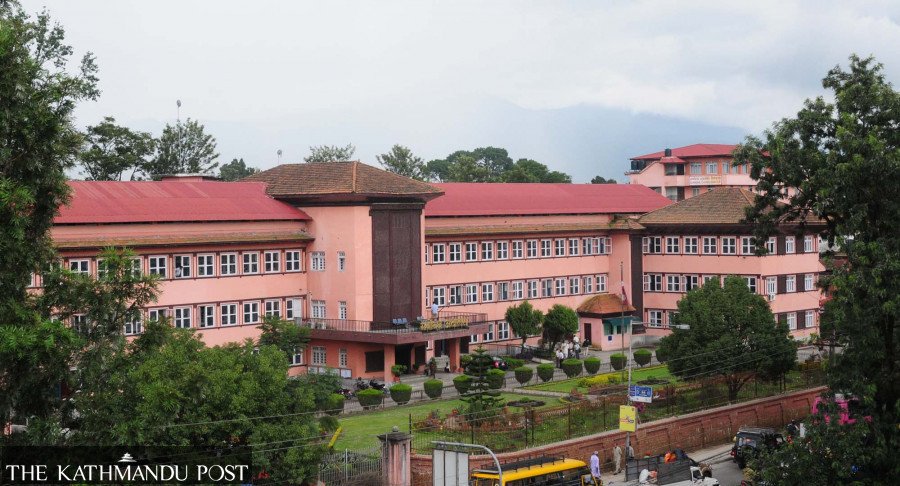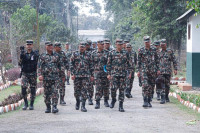National
Court bars Koshi Cabinet from taking important decisions
Final hearing to be held continuously starting July 23.
Binod Ghimire
The Supreme Court on Wednesday directed the Nepali Congress-led Koshi provincial government to refrain from taking any decision with long-term consequences. The ruling applies until the court issues its final verdict in the writ petition challenging the government formation last week.
The main opposition CPN-UML on Friday had moved the court after Province Head Parshuram Khapung, on July 6, appointed Congress parliamentary party leader Uddhav Thapa the new chief minister, based on claims of the majority that included the support of the Speaker as well.
After a preliminary hearing on Wednesday, five days after the petition was lodged, a single bench of Justice Sapana Pradhan Malla also directed the provincial head to produce the original copy of the decision on the government formation and the list of the provincial assembly members who signed to support Thapa as chief minister, before the court by July 19.
Bimal Poudel, the Supreme Court spokesman, said the court has issued a show cause notice against the Office of the Province Head to clarify in writing the basis on which the Thapa-led government was formed. “The court has also decided to conduct a continuous hearing of the petition starting July 23 until the final verdict,” Poudel told the Post. “The Koshi government has been ordered not to take any decision of long term implications until the final verdict.”
The court, however, refused to issue an order to scrap the Thapa-led government and reinstate Hikmat Karki as the chief minister as demanded by the petitioner. Rewati Raman Bhandari, UML’s chief whip in the Koshi Provincial Assembly, said even as the court refused to issue the interim order, it has reduced the status of the Thapa-led government to a mere caretaker. “It neither can present any bills in the assembly nor can it make any appointments until the final verdict,” he told the Post. “We are hopeful that the court will declare the present government unconstitutional when the final verdict is passed."
The opposition parties have strongly objected to the inclusion of the Speaker in the government formation process saying that the head of the assembly can’t take sides and support a political party to form government. They have accused Khapung and Baburam Gautam, Speaker of the assembly, of siding with the ruling alliance.
Thapa was appointed in accordance with Article 168(2) of the constitution after he laid claim to lead a majority-based government with the signatures of 46 lawmakers and Speaker Gautam. Signatures of 29 lawmakers from the Congress, 13 from the CPN (Maoist Centre) including the Speaker, four from the CPN (Unified Socialist) and one from the Janata Samajbadi Party were submitted to the provincial head. Without Speaker Gautam’s support, the coalition would be one vote short of the majority required to form the government led by Thapa.
The petition was filed in the Supreme Court demanding that an order be issued to quash the incumbent ‘unconstitutional government’ formed under Article 168 (2) of the constitution and issue an order paving the way for the formation of a new government in accordance with Article 168 (3).
The Article 168(3) states that if a government couldn’t be formed under 168 (2), the province head shall appoint as chief minister the parliamentary party leader of the party which has the highest number of members in the provincial assembly. The chief minister appointed under clause (2) or (3) shall obtain a vote of confidence from the provincial assembly no later than 30 days after the date of such appointment, it says.
With 40 seats, UML is the largest party in the 93-member assembly.




 9.88°C Kathmandu
9.88°C Kathmandu














